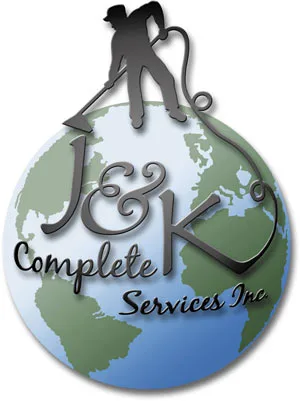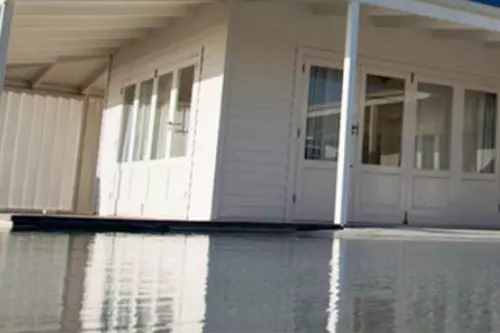Water damage is one of property owners’ most common and costly issues. Whether you own a home or a business, water intrusion can lead to severe structural damage, mold growth, and expensive repairs. Understanding the causes of water damage can help you take preventative measures to protect your property.
In this article, we’ll explore the most common causes of water damage in homes and businesses, how to recognize early signs, and what you can do to minimize risks.
1. Plumbing Leaks
Leaking pipes and plumbing issues are a leading cause of water damage. Even small leaks can result in significant problems over time, including mold growth and weakened structures.
Common Plumbing-Related Water Damage Issues:
- Burst pipes – Caused by freezing temperatures, corrosion, or excessive water pressure.
- Leaking faucets and fixtures – Dripping water can accumulate and cause damage to walls, floors, and cabinets.
- Hidden pipe leaks – Undetected leaks inside walls or ceilings can lead to long-term structural damage.
Prevention Tip: Regularly inspect your plumbing system, look for signs of leaks, and repair minor issues before they become major problems.
2. Roof Leaks
Your roof is your home’s first line of defense against the elements. When it’s compromised, water can seep in and cause extensive damage.
What Causes Roof Leaks?
- Missing or damaged shingles – Wind, storms, or aging can lead to cracks and gaps.
- Clogged gutters – Water can back up and seep under the roofline.
- Improper roof installation – Poor workmanship can lead to weak spots in your roof’s structure.
- Ice dams – In cold climates, ice buildup can block water from draining, forcing it under shingles.
Prevention Tip: Schedule annual roof inspections and clear gutters to ensure proper drainage.
3. Basement Flooding
Basements are particularly vulnerable to water damage because they are below ground level, where water naturally accumulates.
Common Causes of Basement Flooding:
- Poor drainage – Inadequate grading around your home or clogged drainpipes can lead to water pooling around the foundation.
- Sump pump failure – A broken sump pump can allow water to flood your basement.
- Foundation cracks – Over time, cracks can form, allowing water to seep into your basement.
Prevention Tip: Ensure proper drainage around your home, maintain your sump pump, and seal foundation cracks to prevent water intrusion.
4. Appliance Malfunctions
Household and commercial appliances that use water can cause significant damage if they fail or leak.
Appliances That Commonly Cause Water Damage:
- Washing machines – Hoses can crack and leak, causing water to pool on floors.
- Dishwashers – A clogged drain or faulty door seal can lead to water escaping onto the floor.
- Refrigerators – Ice makers and water dispensers can develop leaks.
- Water heaters – Aging water heaters can rust and leak, resulting in substantial water damage.
Prevention Tip: Regularly inspect and maintain appliances, replacing worn hoses and seals before they fail.
5. HVAC System Leaks
Heating, ventilation, and air conditioning (HVAC) systems can cause water damage if they are not properly maintained.
HVAC Water Damage Risks:
- Condensation buildup –Air conditioning units generate condensation during operation. Regular draining of condensation and regular maintenance maintain the efficient operation of the unit.
- Clogged drains – Blocked drain lines can cause water to overflow.
- Improper installation – Poorly installed HVAC systems can lead to leaks and excess moisture.
Prevention Tip: Have your HVAC system inspected and serviced regularly to ensure proper drainage and efficiency.
6. Sewer Backups
A sewer backup is severe water damage that can introduce harmful contaminants into your home or business.
Common Causes of Sewer Backups:
- Clogged sewer lines – Blockages from grease, paper products, or tree roots can prevent wastewater from draining correctly.
- Rainfall – Excessive rain can overwhelm city sewer systems, causing backups into homes and businesses.
- Aging or damaged sewer lines – Older pipes can deteriorate and collapse, leading to backups.
Prevention Tip: Avoid flushing non-biodegradable items down the drain, install a backflow prevention valve, and have your sewer lines inspected regularly.
7. Storm Damage & Natural Disasters
Severe weather conditions can cause widespread water damage, especially during heavy rainstorms, hurricanes, and flash floods.
Weather-Related Water Damage Causes:
- Heavy rain and flooding – Excessive rainfall can overwhelm drainage systems and flood properties.
- Strong winds can damage roofs, allowing rainwater to seep in.
- Snowmelt – Rapid snowmelt in winter can lead to basement flooding.
- Hurricanes and tropical storms – These can cause extreme flooding and structural damage.
Prevention Tip: Stay prepared with proper home waterproofing, storm-resistant roofing, and emergency flood barriers if you live in a high-risk areas.
8. Poor Drainage Around the Property
If your property lacks proper drainage, water can accumulate around your foundation, leading to leaks and long-term structural issues.
Poor Drainage Issues That Cause Water Damage:
- Improper grading – If your property slopes toward your home instead of away from it, water will pool around the foundation.
- Clogged gutters and downspouts – Water will overflow and seep into walls or basements.
- Blocked storm drains – If community drains are blocked or clogged, they can back onto your property.
Prevention Tip: Keep gutters and downspouts clean and ensure that your landscape slopes away from your home to direct water away from the foundation.
9. Mold and Mildew Growth from Excess Moisture
Even minor water damage can lead to mold and mildew if moisture is not adequately removed.
How Water Damage Leads to Mold:
- Lingering moisture – Wet drywall, carpets, and insulation create the perfect environment for mold.
- High humidity levels – Poor ventilation can cause condensation buildup, leading to mold.
- Slow leaks – Undetected leaks under sinks, behind walls, or in basements can fuel mold growth.
Prevention Tip: Address water damage immediately, use dehumidifiers, and ensure proper ventilation to prevent mold growth.
Protect Your Property from Water Damage
Water damage can be devastating, but understanding the risks and taking preventative measures can help safeguard your home or business. Regular maintenance, inspections, and professional water damage restoration services are essential for keeping your property dry and secure.
Need Water Damage Restoration? Contact J & K Complete Today!
If you’re dealing with water damage, don’t wait for the problem to worsen. J & K Complete provides expert water damage restoration services from emergency cleanup to mold remediation. Call us today to schedule an inspection and get your property in its best condition!

